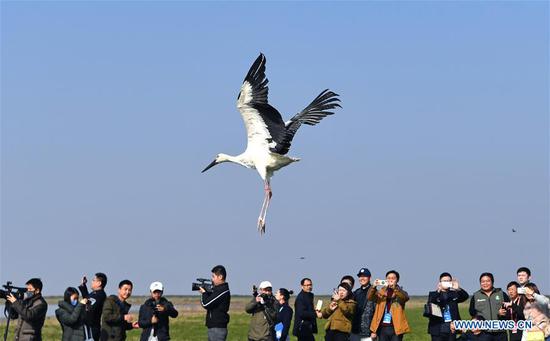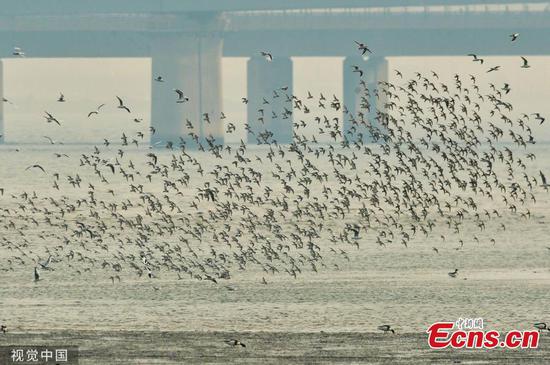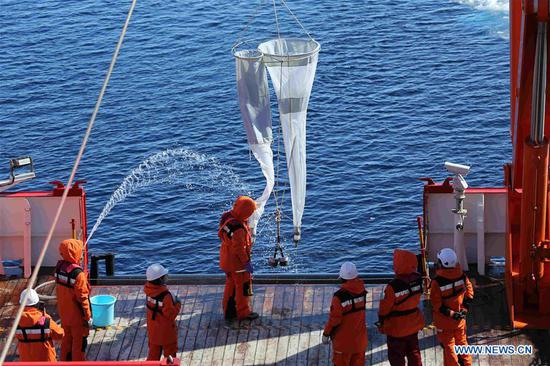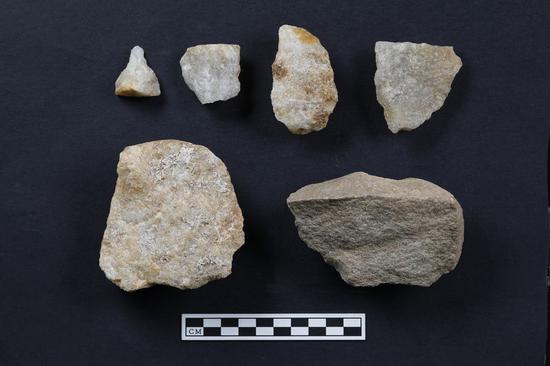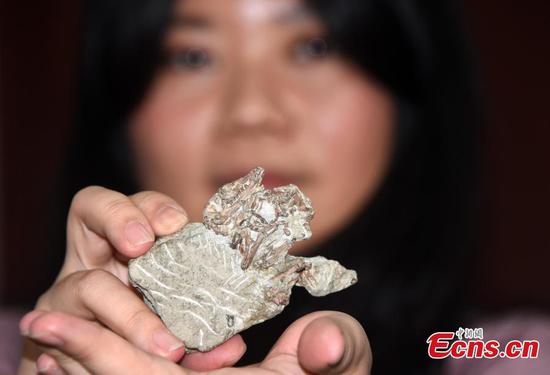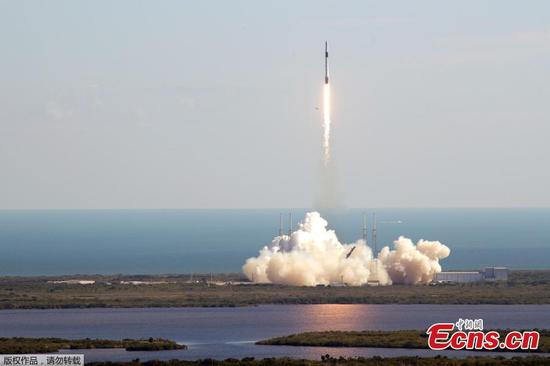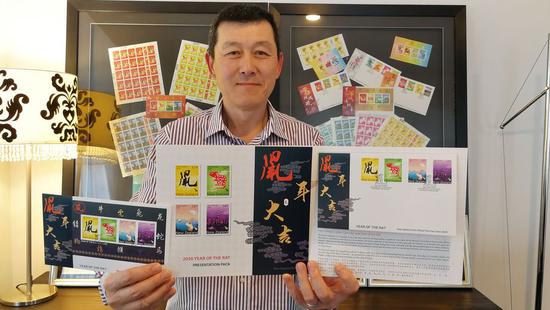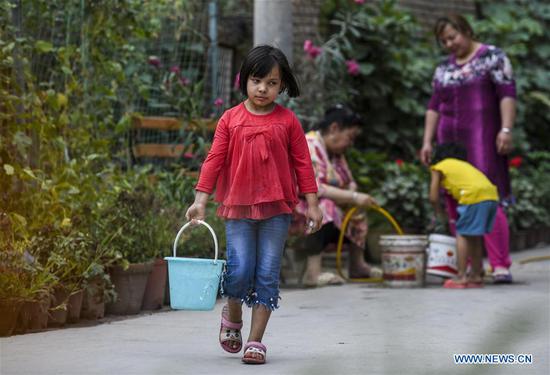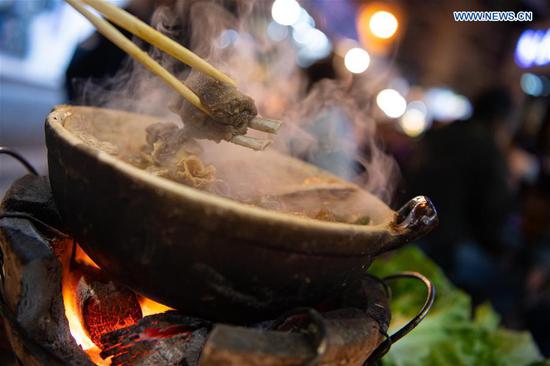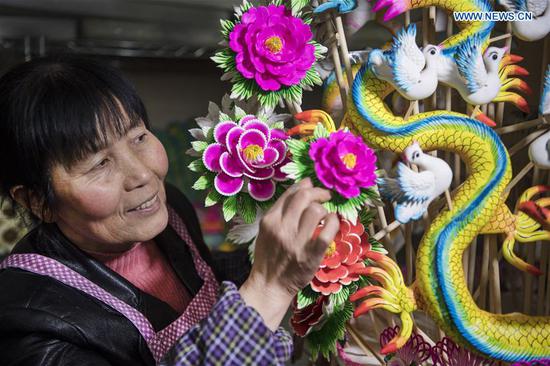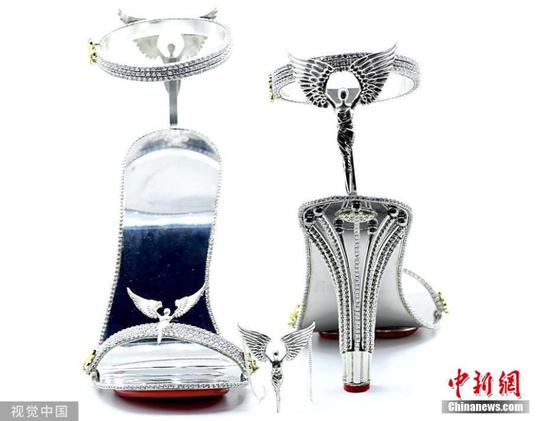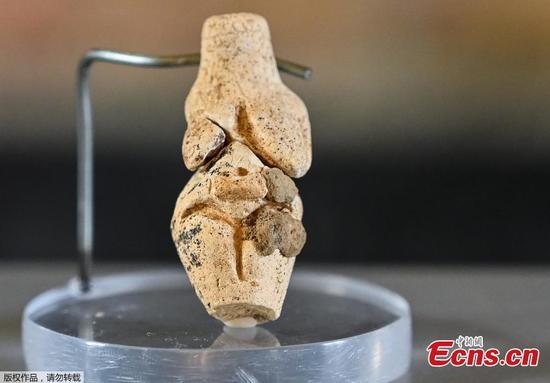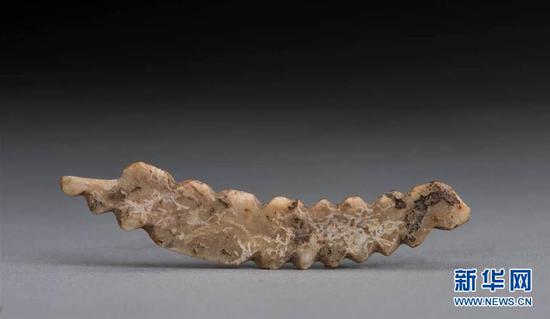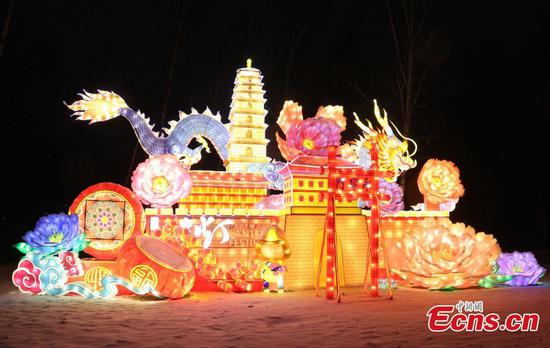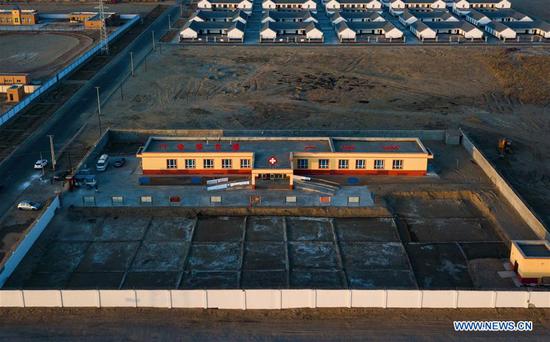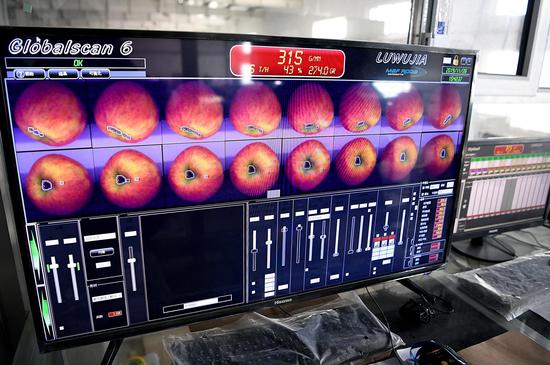
An equipment detects apple quality indicators such as color, size, weight and sweetness in a fruit company in Aksu Prefecture, northwest China's Xinjiang Uygur Autonomous Region, Nov. 28, 2019. (Xinhua/Song Yanhua)
Apple harvest season has once again put Aksu Prefecture, northwest China's Xinjiang Uygur Autonomous Region, in the spotlight.
The Aksu apple has captured the hearts of picky foodies for its "crystal sugar heart" -- a transparent core which is a result of high sugar content, thanks to huge diurnal variation in temperature in the prefecture.
It is not easy to qualify as an Aksu apple. The apples can be divided into up to 28 grades based on indicators such as color, size, weight, sweetness or whether it has the crystal sugar heart.
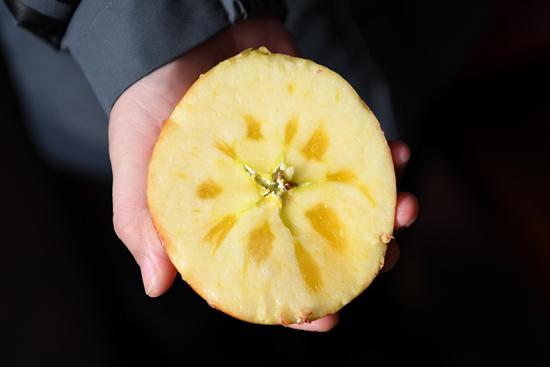
Local fruit companies have introduced a new assistant -- an X-ray often used to help with the diagnoses of bone diseases -- to better standardize the quality of their sweet apples.
"The equipment is capable of detecting the internal conditions of an apple, including sugar content, sugar heart and whether there are any internal lesions. These indicators will be displayed in real-time," said Wang Junbo with the Xinjiang Hongqipo agricultural development group.
"Apples that pass the external and internal examinations will be kept for weighing and grading, and those that fail will not be sold," said Wang.
"With the help of the X-ray, the quality of our Aksu apples can be more stable," said Wang. "Customers can even order the fruits by certain indicators. For example, they can request that all the apples must have the crystal heart, and the sweetness must be no lower than 16 degrees," said Wang.
"Using the X-ray can not only increase the recognition of our apples among consumers but also meet the diversified needs of our clients and further raise our sales," he said.
Wang's company even plans to introduce a magnetic resonance imaging scanner in June next year to check fruit quality.
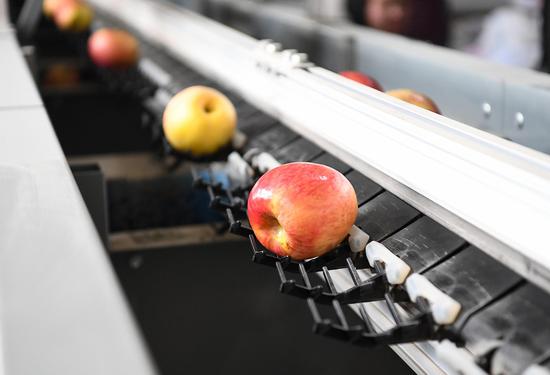
Aksu Prefecture is a deeply impoverished area in China, and fruit has become their main source of income. Local official data showed that revenues from the forest and fruit industry account for about one-third of local residents' total income. Therefore, promoting Aksu apples is reducing poverty.
Song Wei, deputy director of Aksu forestry and grassland bureau, said that the total output of apples in Aksu this year is about 688,800 tonnes, and the area of fruit-bearing apple orchards is about 22,260 ha.










